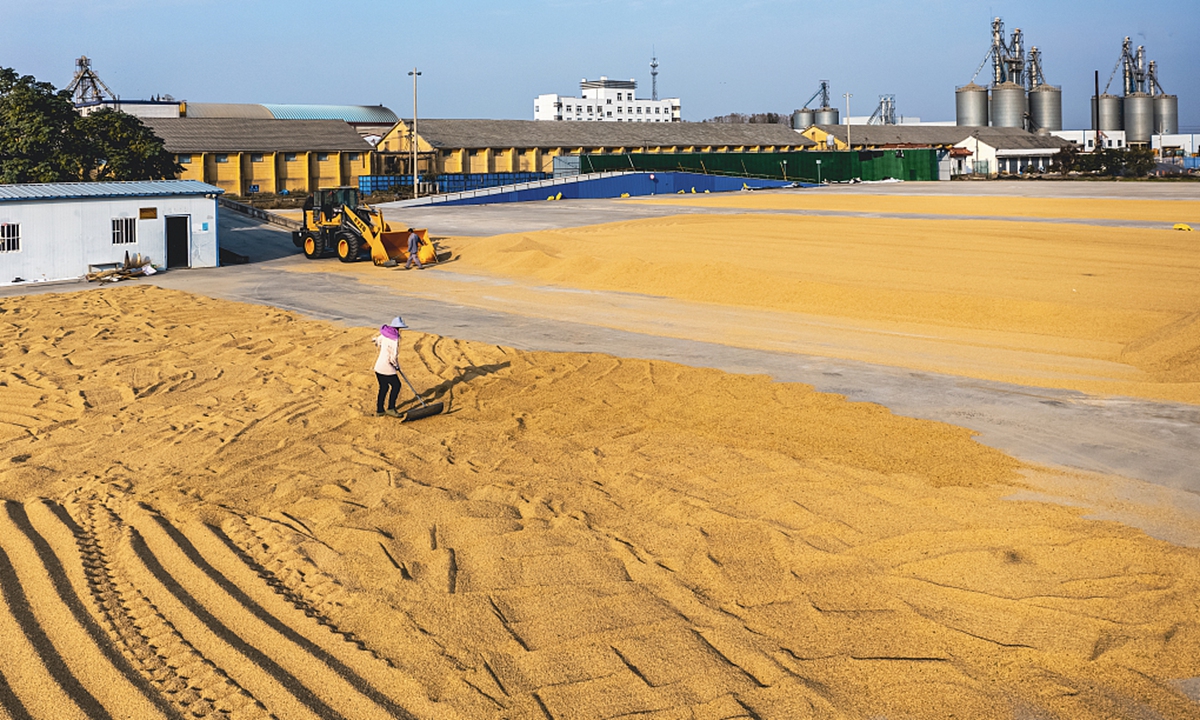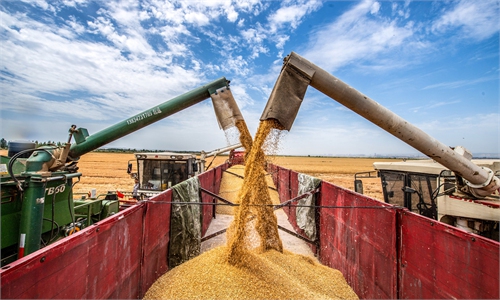
Farmers are drying grain in Huaian, Jiangsu Province on November 2, 2021. Photo: VCG
China and Brazil have reached an agreement to boost cooperation in agricultural trade including corn, soybean meal and peanuts, as China expands the import of feed grains for the needs of deeper agricultural processing, an expert said on Wednesday.
The General Administration of Customs (GAC) and the Brazilian Ministry of Agriculture signed the Protocol on Phytosanitary Requirements for exporting Brazilian corn to China (revised edition), according to a statement on the website of China’s Ministry of Commerce (MOFCOM).
“The signing of the agreement indicates that China moves to enlarge the import of corn while reducing purchase of soybeans in an effort to increase food security,” Li Guoxiang, a research fellow at the Rural Development Institute under the Chinese Academy of Social Sciences, told the Global Times on Wednesday.
Li said that China’s output of corn as feed grains is basically sufficient, whereas expanding imports could better boost the development of the deeper agricultural processing sector.
China’s import of feed grains, especially corn, has increased in the past two years. According to data from the GAC, China imported 28.35 million tons of corn in 2021, an increase of 152.2 percent compared with the previous year.
China used to import corn mainly from the US and Ukraine, with Brazil accounting for a small share for use as seeds.
The MOFCOM listed the deals on Tuesday along with other outcomes from the sixth meeting of the China-Brazil High-level Coordination and Cooperation Committee.
At the meeting, the Chinese and Brazilian government departments also signed documents to jointly improve taxation services for cross-border businesses, strengthen bilateral trade on agricultural products, deepen cooperation on pesticides, and boost investment in the low-carbon and clean-technology sector.
The two countries also agreed to discuss greater integration regarding the digital economy, push for enhanced cooperation in scientific innovation, collaborate on industrial and supply chains, and enhance digital-technology exchanges.
Global Times


